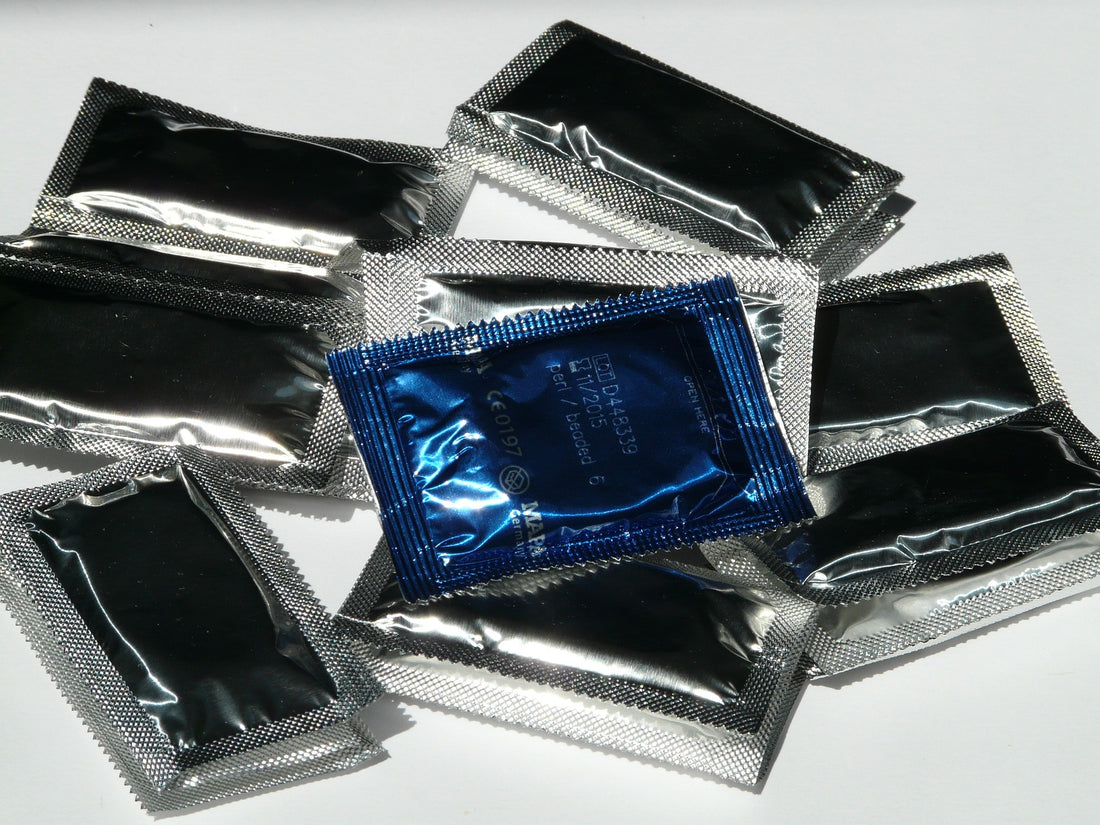
Preventing Sexually Transmitted Diseases (STDs): Essential Tips and Precautions
Introduction
Sexually transmitted diseases (STDs), also called sexually transmitted infections (STIs), are infections caused by viruses, bacteria or parasites that are transmitted through sexual contact.
Some of these infections can lead to serious complications, such as infertility, cancer and even the transmission of HIV, which remains incurable.
Preventing STDs is crucial for individual and public health. Here is a comprehensive guide that covers key prevention strategies and practical tips to protect yourself and others from these diseases.
Some of these infections can lead to serious complications, such as infertility, cancer and even the transmission of HIV, which remains incurable.
Preventing STDs is crucial for individual and public health. Here is a comprehensive guide that covers key prevention strategies and practical tips to protect yourself and others from these diseases.
1. Understand STDs and their transmission
Before discussing prevention measures, it is essential to understand how STDs are transmitted.
These diseases include infections such as HIV, chlamydia, gonorrhea, human papillomavirus (HPV), genital herpes, syphilis and many others.
They are mainly transmitted by:
These diseases include infections such as HIV, chlamydia, gonorrhea, human papillomavirus (HPV), genital herpes, syphilis and many others.
They are mainly transmitted by:
- Unprotected sex (vaginal, anal or oral).
- Sharing equipment such as needles or contaminated sharp objects.
- Contact with infected blood, semen, vaginal secretions or other bodily fluids.
Some STDs, such as herpes and HPV, can even be transmitted through simple skin or mucous membrane contact.
2. The importance of sex education
Comprehensive and clear education about STDs and their transmission is essential, not only for young people, but also for adults.
A better understanding of the risks and means of prevention allows everyone to make informed choices regarding sexuality.
With this in mind, it is important to address the use of protective methods, safe sexual practices and regular screening.
A better understanding of the risks and means of prevention allows everyone to make informed choices regarding sexuality.
With this in mind, it is important to address the use of protective methods, safe sexual practices and regular screening.
3. Consistently use condoms
Male and female condoms are among the most effective methods for preventing the transmission of STDs during sexual intercourse.
When used correctly, they act as a barrier against most infections transmitted through blood or bodily fluids, such as HIV, gonorrhea and chlamydia.
When used correctly, they act as a barrier against most infections transmitted through blood or bodily fluids, such as HIV, gonorrhea and chlamydia.
Here are some practical tips for using condoms correctly:
-
Choose quality condoms : Make sure you use condoms marked CE or NF, which guarantee compliance with quality and safety standards.
-
Check the expiration date : An expired condom can degrade and become less effective.
-
Store them properly : Condoms should be stored away from heat and humidity, as these conditions can affect their strength.
- Use a new condom for each act of intercourse : Never use a condom more than once, as this increases the risk of breakage.
Although condoms offer high protection against most STDs, they do not fully protect against those that are transmitted through simple skin-to-skin contact, such as HPV or herpes.
This is why other preventive measures must be considered in addition.
This is why other preventive measures must be considered in addition.
4. Carry out regular screenings
STDs do not always have visible symptoms.
Some infections may remain asymptomatic for a long time, but they can still be transmitted to a sexual partner.
Regular screening is therefore an act of responsibility towards oneself and others.
Some infections may remain asymptomatic for a long time, but they can still be transmitted to a sexual partner.
Regular screening is therefore an act of responsibility towards oneself and others.
-
When to get tested ? Before starting a new relationship, after unprotected intercourse, or as part of routine monitoring, especially for those with multiple partners.
-
What tests should be done ? Tests include blood tests, urine tests, or genital swabs, depending on the type of infection you are looking for. Talk to your doctor about which tests are right for you.
-
Informing Partner if Diagnosed Positive : If you are diagnosed with an STD, it is important to notify your recent partners so they can also get tested and treated if necessary.
5. Vaccination against certain STDs
Some STDs, including human papillomavirus (HPV) and hepatitis B, can be prevented by vaccination.
-
HPV vaccination : The HPV vaccine is recommended for both girls and boys starting in adolescence. It protects against the strains of the virus most likely to cause cervical, throat, and genital cancers.
-
Hepatitis B vaccination : Hepatitis B is also transmitted through sexual contact and can cause serious liver problems.
The hepatitis B vaccine is usually given in childhood, but adults who have not been vaccinated can also receive it.
These vaccines help reduce risks, but do not replace other preventive measures.
6. Limit the number of sexual partners
Having sex with multiple partners increases the risk of exposure to STDs.
This does not mean avoiding active sex altogether, but being selective and transparent with your partners about the importance of protection.
Adopting open and honest communication about sexual history and health helps build trust and reduce risks.
This does not mean avoiding active sex altogether, but being selective and transparent with your partners about the importance of protection.
Adopting open and honest communication about sexual history and health helps build trust and reduce risks.
7. Practice good personal hygiene and observe symptoms
Good personal hygiene reduces the risk of genital infections by keeping the area clean and avoiding irritation. Here are some habits to adopt:
-
Clean the genital area with lukewarm water, without aggressive products that could unbalance the natural pH.
-
Avoid sharing personal items : Do not share towels, underwear, or other items that may carry germs.
If you experience unusual symptoms (pain, itching, rash, discharge), it is recommended to consult a healthcare professional.
These signs may be indicators of infections and require rapid treatment to avoid any complications.
These signs may be indicators of infections and require rapid treatment to avoid any complications.
8. Consider pre-exposure prophylaxis (PrEP) for HIV
PrEP is a preventive treatment for people at high risk of exposure to HIV.
This medication, taken before sexual intercourse, significantly reduces the chances of contracting the virus in the event of contact with an HIV-positive person.
However, PrEP is only effective against HIV and does not protect against other STDs, which is why it is important to combine it with other preventive measures.
This medication, taken before sexual intercourse, significantly reduces the chances of contracting the virus in the event of contact with an HIV-positive person.
However, PrEP is only effective against HIV and does not protect against other STDs, which is why it is important to combine it with other preventive measures.
9. Treat STDs to prevent complications and transmission
If you are diagnosed with an STD, it is essential to follow the prescribed treatment scrupulously.
Never stop treatment before the end or without the advice of your doctor, even if the symptoms disappear.
Incomplete treatment can lead to complications and increase the risk of transmission to others.
Never stop treatment before the end or without the advice of your doctor, even if the symptoms disappear.
Incomplete treatment can lead to complications and increase the risk of transmission to others.
Conclusion
STD prevention is based on several pillars: protection during sexual intercourse, screening, vaccination and education.
These measures aim not only to protect individual health but also that of the community.
By being proactive and responsible, everyone can help reduce the spread of STDs and improve their quality of life and that of others.
These measures aim not only to protect individual health but also that of the community.
By being proactive and responsible, everyone can help reduce the spread of STDs and improve their quality of life and that of others.
Investing in STD prevention is a step towards safer and more fulfilling sexuality.
By adopting these practices and being open to communication, it is possible to significantly reduce risks and create a healthier and safer environment for everyone.
By adopting these practices and being open to communication, it is possible to significantly reduce risks and create a healthier and safer environment for everyone.




